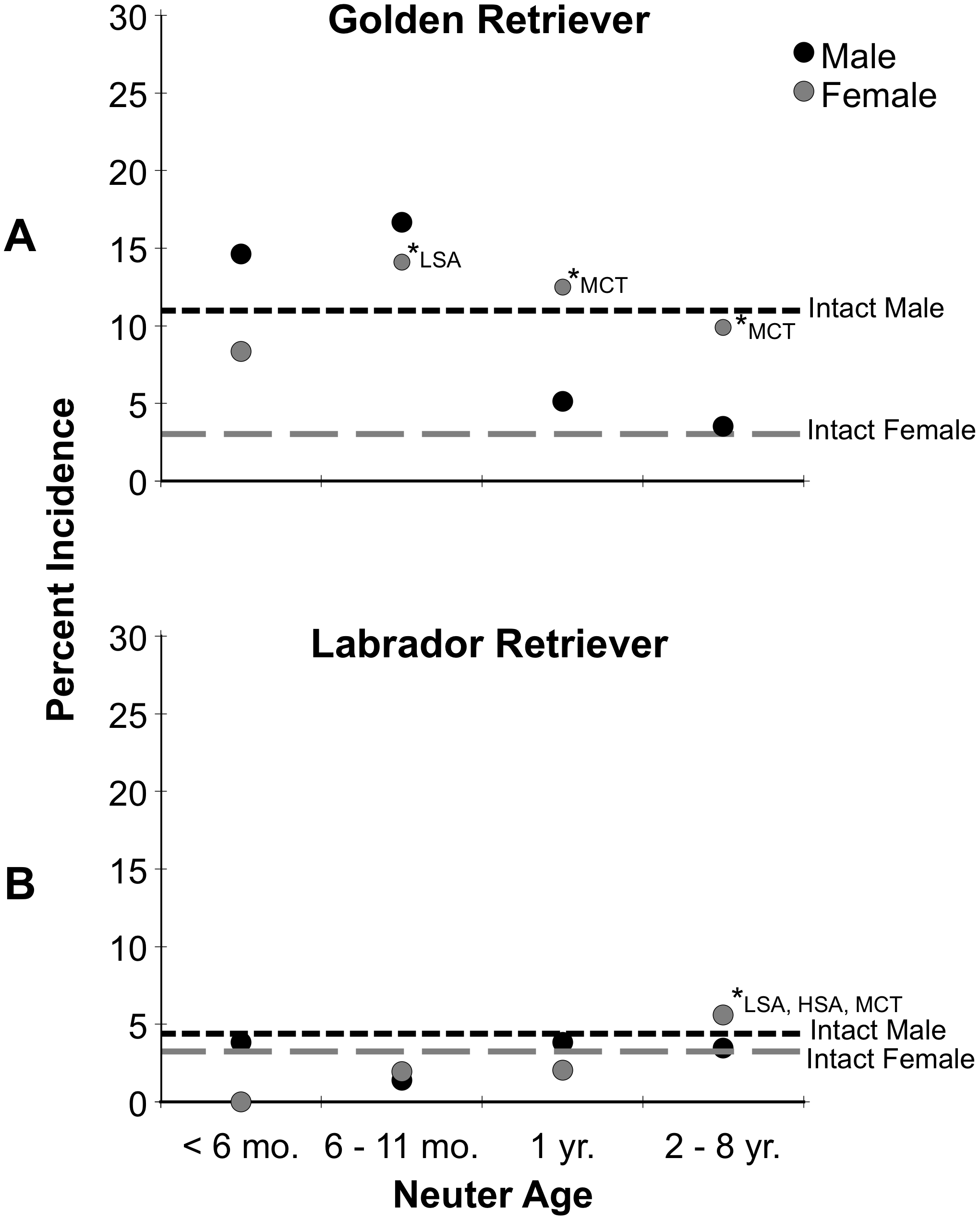Welcome to the world of adorable golden retrievers! If you’re wondering about the perfect age to neuter your furry friend, you’ve come to the right place. Neutering your golden retriever is an important decision to make for their health and well-being. So, let’s dive into the question, “What age should you neuter your golden retriever?”
When it comes to neutering your golden retriever, there isn’t a one-size-fits-all answer. Generally, it’s recommended to consider neutering between the ages of 6 to 12 months. However, it’s always best to consult with your veterinarian to determine the optimal timing based on your pup’s individual needs.
Neutering has its benefits, such as preventing unwanted litters and reducing the risk of certain health issues. But it’s also a big decision, so it’s essential to gather all the information and make an informed choice for your beloved golden retriever. Let’s explore more about when and why you should neuter your furry friend!

What Age Should You Neuter Your Golden Retriever?
Golden Retrievers are one of the most popular dog breeds around, known for their friendly and gentle nature. If you’re considering getting a Golden Retriever, one important decision you’ll need to make is when to neuter your dog. Neutering is a surgical procedure that removes the reproductive organs of a male or female dog, and it can have both health and behavioral benefits. In this article, we’ll explore the optimal age to neuter your Golden Retriever and discuss the potential pros and cons of the procedure.
1. Early Neutering: Before 6 Months
One common recommendation for neutering a Golden Retriever is to do so at a young age, typically before 6 months. Advocates of early neutering argue that it helps prevent unwanted pregnancies, reduces the risk of certain cancers, eliminates the possibility of reproductive-related behavioral issues, and can potentially minimize the risk of certain medical conditions. Additionally, it can help control the population of stray dogs.
However, there are some potential downsides to early neutering. Some studies suggest that early neutering may increase the risk of certain skeletal disorders, such as hip dysplasia and cranial cruciate ligament tears. Additionally, there may be hormonal and developmental differences between early neutered and intact dogs that can affect their behavior and overall health. It’s important to weigh the potential benefits against these potential risks when deciding on the best age to neuter your Golden Retriever.
2. Neutering at 6 to 12 Months
Another common recommendation for neutering a Golden Retriever is to wait until they are between 6 to 12 months old. This allows the dog to go through puberty and experience the natural developmental changes associated with reaching sexual maturity. Some veterinarians prefer this approach because it allows the dog’s body to fully develop before undergoing surgery.
Neutering at this age still offers the benefits of preventing unwanted pregnancies, reducing the risk of certain cancers, and eliminating reproductive-related behavioral issues. Waiting until 6 to 12 months may also alleviate concerns about skeletal disorders and other health risks associated with early neutering.
3. Neutering After 12 Months
Some dog owners and veterinarians prefer to wait even longer and recommend neutering Golden Retrievers after they have reached 12 months of age. This approach allows the dog to fully mature physically and mentally before undergoing surgery. By waiting until they are fully grown, it is believed that the risks associated with early neutering can be minimized.
However, waiting until after 12 months to neuter your Golden Retriever means extending the period when they are at risk of unwanted pregnancies. Additionally, the behavior and health benefits that come with early neutering, such as reduced marking and aggression, may not be as pronounced in dogs neutered at a later age.
Factors to Consider
When deciding on the appropriate age to neuter your Golden Retriever, it’s important to consider various factors. These include your dog’s individual health and behavior, your lifestyle and living situation, and any specific recommendations from your veterinarian.
It’s also worth noting that there are some alternative approaches to neutering, such as vasectomy for males and tubal ligation or ovary-sparing spay for females. These procedures preserve the dog’s reproductive organs while still preventing pregnancy.
Ultimately, the decision about when to neuter your Golden Retriever should be made in consultation with your veterinarian, taking into account all the relevant factors and weighing the potential pros and cons. Neutering can have important health and behavioral benefits, but it’s essential to find the right timing for your specific dog.
The Pros and Cons of Neutering Your Golden Retriever
Neutering your Golden Retriever is a decision that can have significant implications for their health and behavior. Understanding the potential pros and cons of the procedure can help you make an informed choice. While the decision ultimately depends on your individual dog and circumstances, here are some general considerations to keep in mind.
The Pros of Neutering Your Golden Retriever
1. Prevention of Unwanted Pregnancies
One of the primary benefits of neutering is that it eliminates the risk of unwanted pregnancies. Neutering a male Golden Retriever prevents them from impregnating a female dog, reducing the number of puppies that end up in shelters or become strays. Neutering a female Golden Retriever eliminates the possibility of unwanted litters and the potential risks associated with pregnancy and childbirth.
2. Reduced Risk of Certain Cancers
Neutering can help decrease the risk of certain cancers in both male and female Golden Retrievers. Spaying female dogs significantly reduces the chances of developing uterine infections and breast tumors, which are often malignant. Neutering male dogs can decrease the risk of testicular cancer and reduce the likelihood of prostate problems.
3. Behavior and Training Benefits
Neutering can have positive effects on behavior and training. Neutered male Golden Retrievers are less likely to exhibit territorial marking behavior, aggressive tendencies, or roaming behaviors associated with searching for a mate. Female Golden Retrievers that are spayed do not experience heat cycles, which can help prevent certain behavioral changes during those periods.
4. Population Control
By neutering your Golden Retriever, you contribute to controlling the population of stray dogs. Unwanted litters can add to the problem of pet overpopulation, leading to overcrowded shelters and an increased risk of euthanasia for homeless animals. Neutering helps reduce the number of unwanted puppies, making a positive impact on animal welfare.
“Key Takeaways” – What Age Should You Neuter Your Golden Retriever?
- Neutering your golden retriever at the right age is important for their health and behavior.
- Most veterinarians recommend neutering golden retrievers between the ages of six to nine months.
- Neutering can help prevent certain health issues and reduce the risk of certain cancers.
- Neutering can also help reduce behavioral problems such as aggression and roaming.
- Consult with your veterinarian to determine the best age to neuter your golden retriever based on their individual needs and development.
Frequently Asked Questions
Are you considering neutering your golden retriever, but unsure about the right age? Here are some common questions and answers to help guide you in making this decision.
1. What are the benefits of neutering a golden retriever?
Neutering your golden retriever can have numerous benefits for their health and behavior. It helps prevent certain diseases, such as testicular cancer and uterine infections. Neutering can also reduce the risk of unwanted behaviors like aggression or roaming, making your golden retriever more manageable and easier to train.
Additionally, neutering eliminates the possibility of unplanned pregnancies, reducing the number of stray animals and relieving the burden on animal shelters. It also minimizes the urge to mate, which can lead to chasing after other dogs or getting into fights. Overall, neutering can contribute to a longer, healthier, and more balanced life for your golden retriever.
2. At what age is it recommended to neuter a male golden retriever?
The optimal age to neuter a male golden retriever is typically between six to twelve months. At this age, most golden retrievers have finished their growth spurt, reducing the risk of complications during surgery. Neutering at this time can also help prevent unwanted behaviors, such as marking territory or mounting other dogs.
However, it’s important to consult with your veterinarian as the best age for neutering can vary depending on your dog’s individual circumstances and overall health. They will consider factors such as the dog’s size, breed, and any existing medical conditions to determine the most appropriate age for the procedure.
3. When should a female golden retriever be spayed?
For female golden retrievers, spaying is usually recommended between six to nine months of age. This age range allows for the procedure to be performed before the first heat cycle, which typically occurs between six to twelve months. Spaying before the first heat can help prevent the risk of certain reproductive diseases, such as mammary tumors and uterine infections.
However, it’s essential to consult with your veterinarian to determine the optimal timing for spaying. They will take into account your dog’s specific health needs and any breed-specific considerations to provide the best recommendation for your female golden retriever.
4. Can neutering a golden retriever affect their behavior?
Neutering can have some impact on a golden retriever’s behavior. It can help reduce aggressive tendencies, particularly in male dogs, by decreasing the production of certain hormones. Neutering can also decrease the likelihood of roaming, marking territory, or mounting behaviors.
However, it’s important to note that neutering alone is not a guaranteed solution for behavioral issues. Training, socialization, and a nurturing environment are also essential factors in shaping a golden retriever’s behavior. If you have concerns about your dog’s behavior, it’s recommended to consult with a professional trainer or behaviorist to address any underlying issues.
5. Are there any potential risks or side effects of neutering a golden retriever?
Like any surgical procedure, there are potential risks associated with neutering a golden retriever. These risks can include complications during anesthesia, infection, bleeding, or adverse reactions to medications. However, these risks are generally low, and most dogs recover smoothly from the surgery.
It’s important to follow the post-operative care instructions provided by your veterinarian to minimize any potential complications and ensure a smooth recovery. If you notice any unusual symptoms or have concerns during the recovery period, always reach out to your vet for guidance and support.

Summary
If you have a golden retriever, when should you get them neutered? It turns out that the best time is around 6 to 9 months old. Neutering can prevent health problems and unwanted behaviors. However, it’s important to speak with your vet to determine the best age and consider your pup’s individual needs.
By getting your golden retriever neutered at the right age, you can help them live a healthier and happier life. Neutering can prevent certain diseases and reduce the risk of certain cancers. It can also help with behavior issues like aggression and marking territory. Remember to consult your veterinarian to decide what age is best for your furry friend.